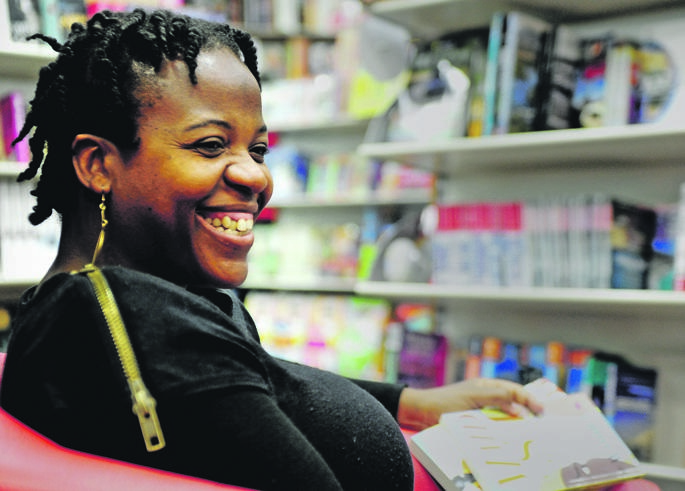
For the past few years, the Copyright Amendment Bill has been in development.
The Academic and Non-Fiction Authors’ Association of SA (Anfasa) has been active all this time; has spoken about authors’ rights at conferences; participated in countless consultative meetings; and has sent detailed submissions to the department of trade and industry. Last year, an Anfasa delegation went to Parliament to present the case of authors to the parliamentary portfolio committee on trade and industry.
Nothing we have said has had any effect. The powers that be are determined that copyright should be driven by “access” – that learning and knowledge production will be stunted unless written works may be copied and “re-versioned” (digitised, translated or re-worked into another form) without the author’s consent.
The history of the bill began when a delegation of musicians went to the president to complain that they were “dying in poverty” as their music royalties were not being paid because of outdated copyright legislation. The president listened sympathetically and set up a commission to investigate and make recommendations for changes to the Copyright Act.
The idea was to improve the law for creators – specifically for musicians, but also for authors of written works and for visual artists. But this ran into strong opposition from those who wished to disseminate books and journal articles freely to pupils and students under the principle of “access”.
The Copyright Amendment Bill allows works intended “for education” to be copied without permission or payment. There are conditions attached – it is not quite so simple – but the bottom line is that authors of books written for schools and universities will suffer a loss of royalties because their books will be bought in much smaller numbers. Hardest hit will be authors writing in indigenous languages as their readership among the general public is small, and their books are only bought in large numbers when prescribed for schools and universities.
Some claim that the overriding importance is “access” and that copyright law “locks away” information. Some even claim that copyright prevents people from creating! Although copyright is a subject that easily inflames emotions, it is often poorly understood.
Anfasa supports access. We do not write to lock our work away and hide it from readers – we understand that knowledge requires accessible information.
However, there are two points of contention. The first is that the current law already allows free access in certain special cases. What the bill should have done is clear up some vague provisions and make the law clearer for laypersons, rather than bringing in a new system of copyright exceptions based on the US principle of “fair use”, as this promises years of copyright confusion and recourse to the courts.
Fair use does not mean use that is fair. There are two seemingly similar doctrines that allow a work to be copied without permission. One is called “fair dealing” and the other is “fair use”. The fundamental difference between them is that, in fair dealing, the law says what is fair and what the allowable uses are, whereas in fair use, the guidelines are less precise and it is up to a court of law to decide whether the use has been “fair”.
Fair use opens the door to illegitimate uses that can only be fought out in the courts and that favour the user (often a powerful institution like a university or even a multinational company). Which author can afford to take Google to court?
Supporters of fair use line up behind US law and are lobbying to introduce it into many countries. Other countries are holding out because they see the US law lobbyists as being hell-bent on spreading their influence. Extensive studies show that the fair use system is very detrimental to cultural development largely because of its disrespect for the creator. Unfortunately, it looks like South Africa is about to be “captured”.
The second point of contention is that copyright law should provide a balance between the interests of creators and the needs of society. The Copyright Amendment Bill has fatally disturbed that balance. In the bill, the so-called right of the user trumps the right of authors to derive economic benefit from their work – in other words, to earn a living from their talent and labour.
The bill will soon be presented to the National Assembly and will pass into law. The publishing industry (largely based on schoolbooks, as are all African publishing industries) will be seriously damaged. Major educational publishers may close down, which will lead to the loss of jobs. Small black-owned companies that depend on the schools market will go under. In that scenario, local authors will find it difficult to get a publisher. Authors writing in indigenous languages will be out on a limb. Fewer books will be written. Foreign publishers will boycott us if their books can easily be copied instead of sold. Our reading and writing culture will suffer a blow from which it may never recover.
This message admits to some generalities. There is much more wrong with the bill than is pointed out here. On the other hand, the bill is not all bad. Musicians benefit from it because it facilitates the distribution of their royalties. Visual artists benefit because it provides an “artists’ resale royalty”. Authors of books gain nothing – in fact, they lose.
Could some last-minute intervention happen? Perhaps a respected author will stand up and forcefully remind the lawmaker that unrestricted “access” has multiple consequences, some of them unintended – and that as many if not more authors die in poverty than musicians.
Writers are the conscience of our country, and yet their status in society and their contribution to cultural heritage, social cohesion and nation-building isn’t recognised by the lawmaker. A luta continua!
- Seeber is the founder of Anfasa. This is an edited and extended version of a letter sent to Anfasa members last week




 Publications
Publications
 Partners
Partners








